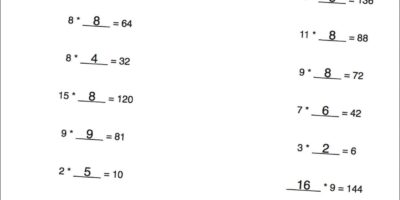Military to Civilian Education Programs
Military to Civilian Education Programs
Transitioning from military to civilian life presents numerous challenges. One significant aspect is education. Military to civilian education programs help service members continue their education in a way that aligns with their career goals. These programs offer support systems, resources, and tailored pathways for veterans and active-duty members.
Understanding the GI Bill

The GI Bill has been a cornerstone for veterans pursuing higher education. The most recent version, the Post-9/11 GI Bill, provides substantial benefits. This includes covering full tuition for in-state students at public universities, a monthly housing allowance, and a stipend for books and supplies.
Eligibility depends on the length of service. Veterans who’ve served at least 90 days post-September 10, 2001, qualify for benefits. Transferring benefits to dependents can also take place, offering families educational support.
Yellow Ribbon Program
This program supplements the GI Bill. It helps cover out-of-state tuition and private school costs exceeding the GI Bill’s limits. Institutions voluntarily participate, agreeing to cover a portion of the remaining expenses. Veterans Affairs matches the contribution, significantly reducing out-of-pocket costs for veterans.
Vocational Rehabilitation and Employment Program (VR&E)
VR&E, also known as Chapter 31, supports veterans with service-connected disabilities. The program provides personalized counseling, training for new skills, resume assistance, and job-seeking services. It aims to ensure that veterans can find and sustain meaningful employment post-service.
Military Tuition Assistance (TA)
TA programs are for active-duty service members. They pay up to 100% of tuition costs for courses at accredited institutions. Each branch of the military has specific rules on TA usage and eligibility. TA is a valuable tool for those seeking to advance their education while still serving.
Credit for Military Training
Many military experiences provide equivalent educational credit. Institutions evaluate these experiences to award academic credit. This reduces the number of courses needed for a degree. Organizations like the American Council on Education (ACE) work with colleges to ensure fair credit awarding.
Online Learning Options
Online learning offers flexibility for veterans balancing various responsibilities. Many universities have robust online programs tailored to veterans’ needs. These programs allow students to study from anywhere, providing access to education without geographical constraints.
Support Services in Universities
Veteran support services have become a staple in universities. These services include counseling, academic advising, and peer support groups. Dedicated veteran centers on campuses provide a place for veterans to connect and access resources.
Scholarships and Grants
Various scholarships and grants are available specifically for veterans. Organizations like the Pat Tillman Foundation and AMVETS offer substantial financial assistance. Applying for these scholarships can significantly reduce the financial burden of education.
Apprenticeship Programs
Apprenticeships combine on-the-job training with classroom instruction. These programs often lead to industry-recognized certifications. Fields like IT, healthcare, and manufacturing actively seek veterans for their disciplined and structured approach to work.
Certification and Licensing
Many professions require specific certifications or licenses. Programs exist to help veterans translate their military experience into civilian credentials. Examples include Project Management Professional (PMP) and CompTIA certifications. These credentials enhance employability in competitive job markets.
Federal and State Support Programs
The Federal government offers additional support through various programs. State governments also provide resources, including financial aid and in-state tuition benefits. Checking state-specific veteran services can uncover more opportunities.
Career Counseling Services
Transitioning to a civilian career can be daunting. Career counseling services help veterans identify suitable career paths. These services include resume writing, interview preparation, and job search strategies. Many universities and organizations offer specialized veteran career counseling.
Networking Opportunities
Building a professional network is crucial. Veteran organizations host networking events and job fairs. These events connect veterans with potential employers and mentors. Online platforms like LinkedIn groups also provide networking opportunities.
Telehealth and Mental Health Support
Mental health support is vital during the transition. Telehealth services offer convenient access to mental health professionals. Organizations like the Veterans Crisis Line provide 24/7 support. Ensuring mental well-being supports academic and career success.
Customized Learning Paths
Customized learning paths cater to individual needs and goals. Veterans can pursue degrees in fields aligned with their military experience or explore new interests. Personalized education plans ensure relevance and engagement.
Financial Literacy Programs
Understanding financial aid, budgeting, and managing expenses is essential. Financial literacy programs educate veterans on managing their finances effectively. This knowledge supports long-term financial stability and success.
Internship and Co-op Programs
Gaining practical experience through internships and co-op programs is beneficial. These opportunities provide real-world experience and enhance resumes. Many companies value the skills and discipline that veterans bring to these roles.
Community College Programs
Community colleges offer affordable and flexible education options. They provide pathways to four-year degrees and vocational training. Many community colleges have veteran-specific initiatives to support their educational journey.
Technical and Trade Schools
Technical and trade schools focus on hands-on training for specific careers. These schools offer programs in fields like automotive technology, welding, and electrical work. Veterans often excel in these structured, skill-based environments.
Online Course Platforms
Platforms like Coursera and edX offer courses from top universities. Veterans can take individual courses or complete certificate programs. These platforms provide affordable and flexible education options.
Employer Tuition Reimbursement
Many employers offer tuition reimbursement programs. This benefit allows veterans to further their education while employed. Checking with employers about available tuition assistance can open up more educational opportunities.
Peer Mentorship Programs
Peer mentorship programs connect new students with experienced veterans. Mentors provide guidance, share experiences, and offer support. This peer connection can ease the transition and promote academic success.
Veteran Service Organizations (VSOs)
VSOs advocate for veteran rights and provide resources. Organizations like the Veterans of Foreign Wars (VFW) and American Legion offer educational support and networking opportunities. Engaging with VSOs can provide additional assistance.
Entrepreneurship Programs
Veterans interested in starting their own business can benefit from entrepreneurship programs. Organizations like SCORE and the Small Business Administration (SBA) offer training and resources. These programs provide guidance on business planning, funding, and growth strategies.
Translating Military Skills to Civilian Jobs
Understanding how to translate military skills to civilian jobs is crucial. Programs and workshops help veterans rewrite their resumes to reflect their experience in a way that employers value. Skills like leadership, teamwork, and problem-solving are highly transferable.
Networking with Veteran-Friendly Employers
Some employers specifically seek out veterans for their workforce. These veteran-friendly companies often have initiatives to support veteran employees. Researching and connecting with these employers can open doors to career opportunities.
Flexible and Accelerated Degree Programs
Flexible and accelerated degree programs cater to veterans’ unique needs. These programs allow for faster completion times and adaptable schedules. Many universities offer evening, weekend, and intensive course options.
Recognition of Prior Learning (RPL)
RPL recognizes the skills and knowledge gained through military service. This process can convert military experience into academic credits. RPL helps reduce the time and cost required to complete a degree.
Student Veteran Organizations
Student veteran organizations on campuses provide a sense of community. These groups advocate for veteran students and offer social and academic support. Being part of such an organization can enhance the overall educational experience.
Continuing Education and Professional Development
Lifelong learning is vital for career advancement. Veterans can pursue continuing education and professional development courses. These courses ensure they stay updated with industry trends and standards.
Accessibility and Disability Services
Accessibility and disability services ensure that veterans with disabilities receive the support needed. These services include accommodations like extended test times and adaptive technology. Ensuring accessibility promotes a successful educational experience.
Global Education Opportunities
Study abroad programs offer global education opportunities. Veterans can experience different cultures and education systems. These programs often provide comprehensive support and integration services.
Community and Non-Profit Organizations
Community and non-profit organizations offer various educational resources. They provide scholarships, tutoring, and job placement services. Engaging with these organizations can provide additional support and networking.
Roles of Educational Advisors
Educational advisors play a crucial role in guiding veterans through their education journey. They help in selecting courses, understanding degree requirements, and providing academic support. Regular consultations with advisors help veterans stay on track with their academic goals.
Veteran-Friendly Campuses
Some campuses are designated as veteran-friendly due to their extensive support services. These campuses typically have dedicated staff and resources to assist veteran students. Researching and choosing veteran-friendly campuses can significantly enhance the educational experience.
Engaging with Alumni Networks
Alumni networks provide valuable connections and resources. Veterans can benefit from networking with alumni who have successfully transitioned to civilian careers. These connections can provide mentorship and job opportunities.
Role of Technology in Education
Technology has transformed education, making it more accessible and interactive. Tools like learning management systems (LMS), virtual classrooms, and educational apps enhance the learning experience. Veterans can leverage these technologies to support their studies.
Impact of Education on Career Advancement
Education significantly impacts career advancement opportunities. Higher education levels can lead to better job prospects, higher salaries, and increased job stability. Pursuing further education is an investment in future success.
Developing Soft Skills
In addition to technical skills, soft skills are crucial in the civilian workforce. Programs and workshops focusing on communication, teamwork, and leadership help veterans develop these skills. Strong soft skills complement technical expertise and enhance employability.
Importance of Time Management
Balancing education, work, and personal life requires effective time management. Time management workshops and resources help veterans develop strategies to manage their schedules efficiently. Mastering time management is key to academic and career success.
Utilizing Library and Research Resources
Libraries and research resources provide valuable academic support. Veterans can access books, journals, and online databases to aid their studies. Utilizing these resources enhances research capabilities and academic performance.
Participating in Study Groups
Study groups offer collaborative learning opportunities. Veterans can join or form study groups to discuss course material, prepare for exams, and complete assignments. Study groups provide peer support and enhance understanding of complex topics.
Financial Aid Counseling
Financial aid counseling helps veterans navigate available financial support options. Counselors assist with understanding and applying for grants, scholarships, and loans. Access to financial aid counseling ensures veterans make informed decisions about funding their education.



